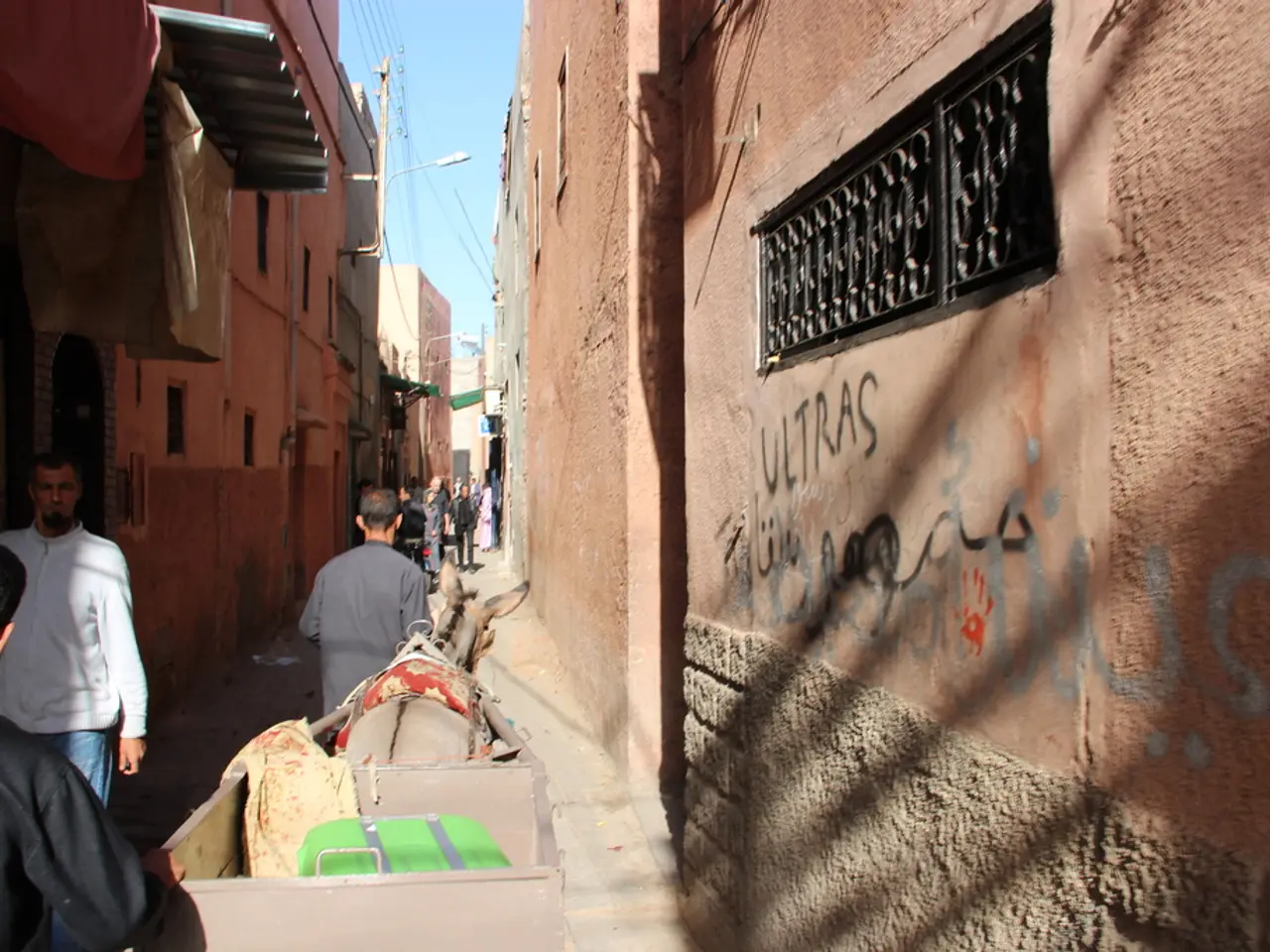International demand for a Palestinian state grows, yet its establishment remains elusive
Canada, France, and the United Kingdom have joined forces in endorsing the establishment of a Palestinian state, marking a significant shift in diplomatic efforts towards a two-state solution [1][2]. This move comes as the international community seeks to address the ongoing conflict and humanitarian crises in Gaza and the West Bank.
France has announced plans to recognise Palestine at the United Nations in September 2025 and is co-sponsoring a resolution with Saudi Arabia at the UN General Assembly. This resolution calls for "tangible, time-bound, and irreversible steps" towards achieving a two-state solution, including Israeli withdrawal from Gaza and the exclusion of Hamas from governance [2]. The United Kingdom, on the other hand, has resumed funding to UNRWA, suspended arms exports to Gaza, imposed sanctions on violent settlers, and signed a landmark agreement with the Palestinian Authority [3]. Canada has also joined these diplomatic efforts, although specific contributions have yet to be detailed [1][2].
Despite this diplomatic momentum, significant obstacles remain. The Israeli government, led by Prime Minister Benjamin Netanyahu, has explicitly rejected moves towards Palestinian statehood, with the current administration opposing realistic plans for Palestinian sovereignty and considering controversial actions such as annexation in Gaza and the West Bank [1]. Full UN recognition of Palestinian statehood requires the support of all five permanent UN Security Council members, including the United States, which is expected to veto such efforts [1].
The ongoing conflict and humanitarian crisis in Gaza persist with no immediate resolution in sight. Palestinians have welcomed the announcements as a boost for their cause, while some Israeli ministers have threatened to starve Palestinians in Gaza rather than give in to international pressure [1].
The calls for a Palestinian state are due to a variety of motives, including frustration with Israel, domestic pressure, and outrage over the images of starving Palestinians. The latest moves by US allies France, Britain, and Canada have left Washington increasingly isolated over its backing for Israel [1]. Meanwhile, US President Donald Trump seems increasingly frustrated with Israeli Prime Minister Benjamin Netanyahu, and the growing number of angry ex-partners in the international community is likely to increase pressure on Trump to shift his position on Israel [1].
Trump's efforts to normalise relations with Saudi Arabia have also been met with resistance, with Riyadh firm that this cannot happen without an irreversible path to a Palestinian state [1]. Netanyahu, for his part, has stated that he would wear any recognition of a Palestinian state as a badge of honor, while some members of his cabinet are far more hard-line and want to annex the territory [1].
As of now, more than 140 countries have already endorsed the idea of a Palestinian state, but the Israeli government has rejected these calls, describing them as tantamount to rewarding terrorism [1]. The closest to what a future Palestinian state may look like was hashed out in the Oslo Accords in the 1990s, which envisioned a state based on Israel's 1967 borders [1]. However, the expansion of Israeli settlements in the occupied West Bank threatens the chances of creating a contiguous Palestinian state in the region. The Palestinian Authority, which governs parts of the West Bank, is also distrusted by many Palestinians.
In conclusion, while countries like France, the United Kingdom, and Canada are increasing diplomatic support for Palestine's statehood at the international level, the path to actual statehood is impeded by Israeli governmental opposition, ongoing conflict, and lack of unanimous support in international institutions. The future of the Palestinian state remains uncertain, with many challenges to be overcome before a peaceful resolution can be achieved.
[1] Al Jazeera (2021) Canada to recognise Palestinian state: report. [online] Available at: https://www.aljazeera.com/news/2021/5/25/canada-to-recognise-palestinian-state-report
[2] Haaretz (2021) France to recognize Palestine at the UN in 2025, co-sponsors UN resolution for two-state solution. [online] Available at: https://www.haaretz.com/middle-east-news/.premium-france-to-recognize-palestine-at-the-un-in-2025-co-sponsors-un-resolution-for-two-state-solution-1.9752703
[3] The Guardian (2021) UK restores funding to UNRWA after suspension under Johnson government. [online] Available at: https://www.theguardian.com/world/2021/may/24/uk-restores-funding-to-unrwa-after-suspension-under-johnson-government
Politicians from France, Canada, and the United Kingdom, amidst ongoing war-and-conflicts and humanitarian crises in Gaza and the West Bank, seek policy-and-legislation changes, such as recognizing Palestine at the United Nations, signing agreements, and resuming funding to UNRWA as a means to achieve a two-state solution. The Israeli government, led by Prime Minister Netanyahu, opposes these diplomatic efforts, causing uncertainty in the future of the Palestinian state.






